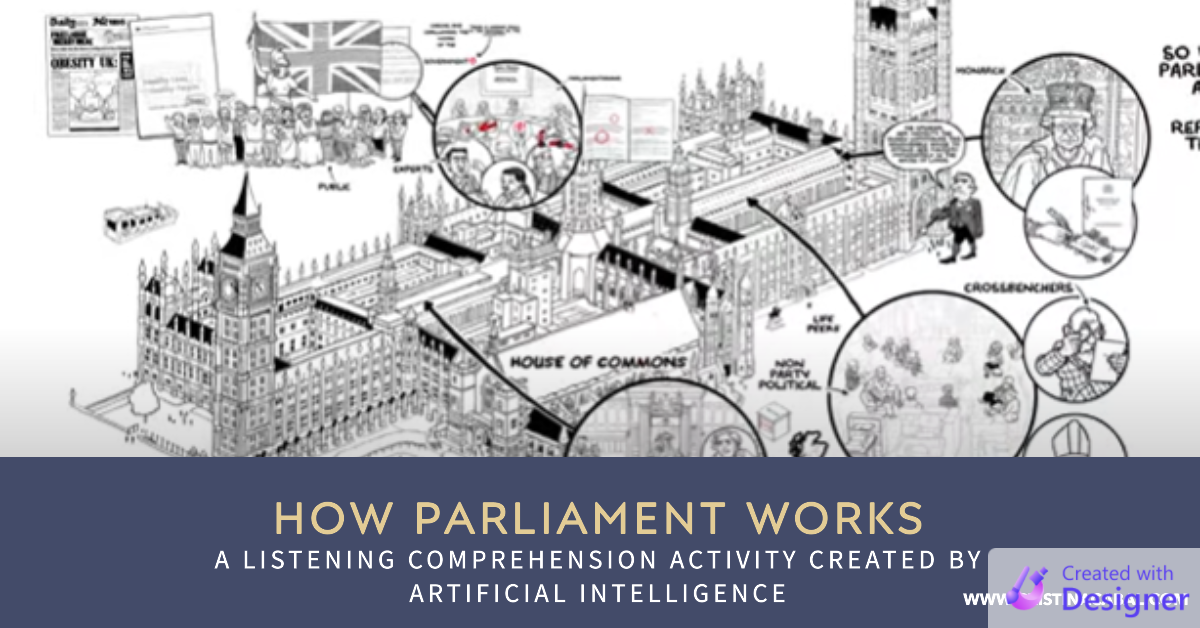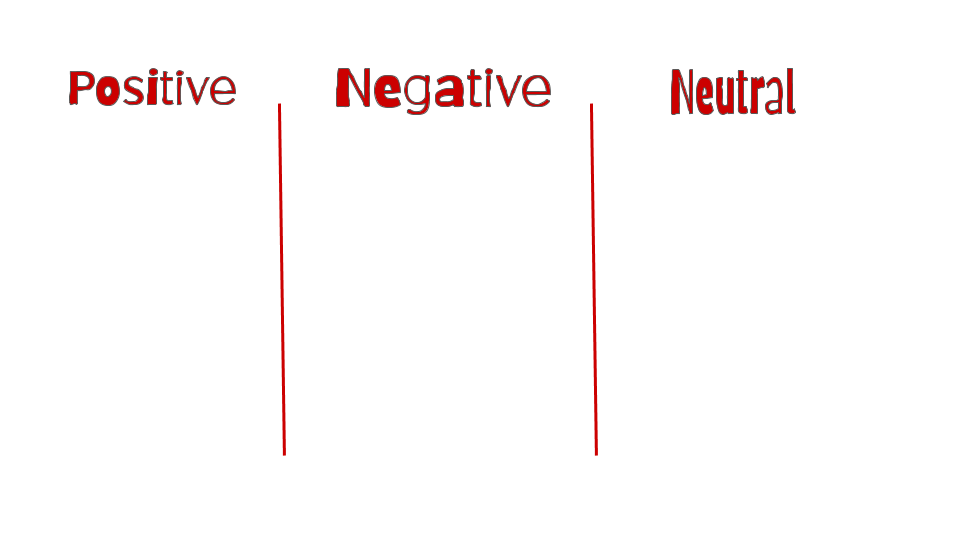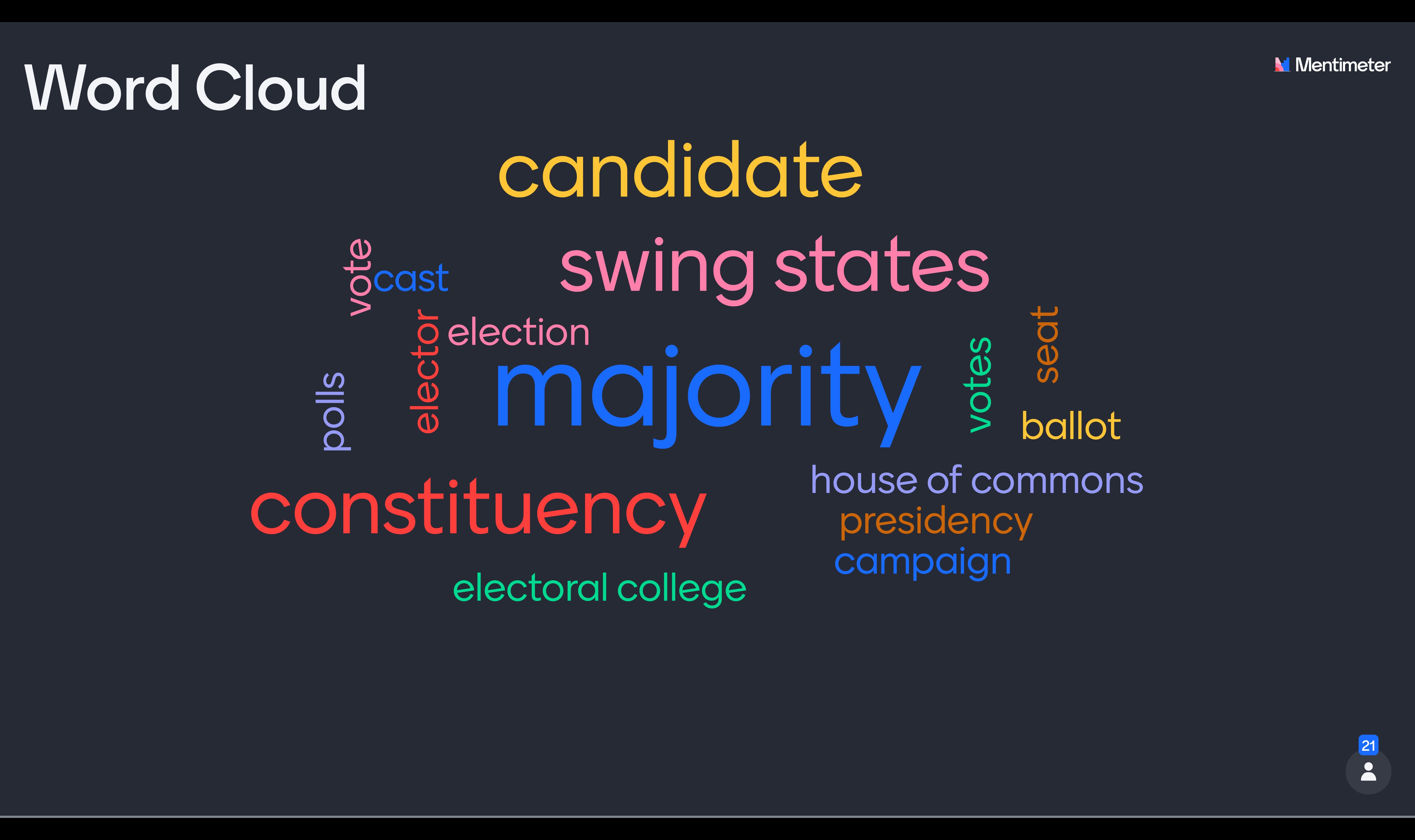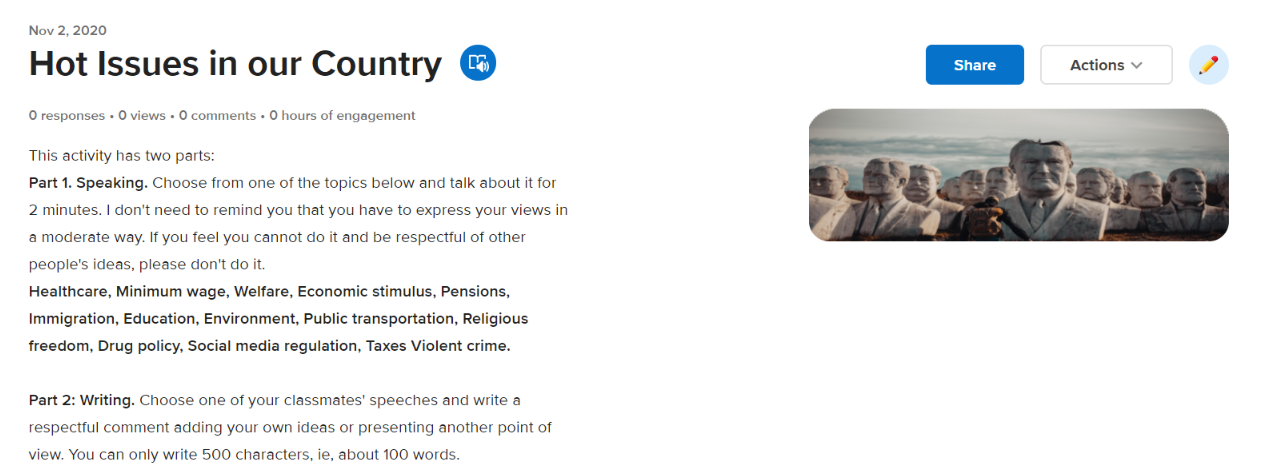Picture this. Me announcing to my C1 students that the next lesson in the textbook was going to revolve around Politics. To be honest, any other year, I would have probably shared my students’ feeling of apathy or disinterest. But this year I was really looking forward to this lesson as AI is shaking things up in my English class!
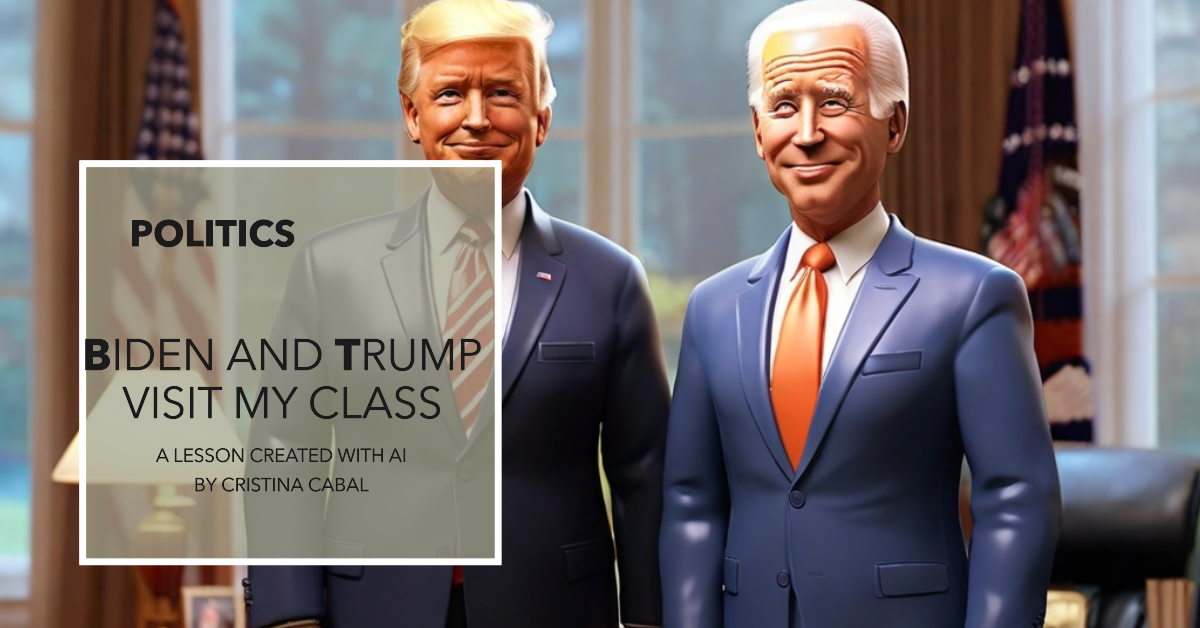
Imagine my students’ jaws dropping when I announced a class debate featuring… wait for it… virtual versions of Biden and Trump! And both using the vocabulary we have been studying, revising and reinforcing.
In this lesson for C1 students, you will find
- Tailor-made texts using specific vocabulary
- Talking avatars reading these texts to create a listening comprehension activity
- Mediation activity using the talking avatars and the texts
- Speaking activity using target vocabulary
How I Did it
Using ChatGPT to Generate Text Using Target Vocabulary
Prompt: You are an English teacher. Write a text divided into paragraphs. Each paragraph should be preceded by a heading. The headings should be: economic policies and immigration policies. Write it from a Republican point of view. Write a short paragraph for each heading, using C1 English and include such as the verbs benefit, trigger, boost, undermine, bankrupt, to earn peanuts, to be into, compound, combat, and lead
I repeated the same prompt but asking ChatGPT to generate the text from a Democrat point of view.

Listening Comprehension: creating talking avatars to read the text
I created two separate talking avatars. I created Joe Biden and uploaded the text generated by ChatGPT, and then did the same for Donald Trump, and uploaded them to YouTube. This step was important as I wanted to use Twee.com to generate the comprehension questions, which you can find here.
Mediation Activity
Download: Joe Biden PDF, Donald Trump PDF
And … we shouldn’t let the visit of these two politicians to our class go to waste, so the next step will be to use these talking avatars for a mediation activity, hitting several birds with one stone.
- help students boost pronunciation
- help students boost speaking and mediation skills
Steps:
Note:The day before, I asked my students to bring their earbuds and mobile phone s with a QR Code reader installed for the next class.
During the class, I organized the students into two groups – Republicans and Democrats – and paired them up accordingly. I handed out copies with Joe Biden to the Democrats and photocopies featuring Donald Trump to the Republicans.
Aim: engage in a mediation activity by conveying the information to the other candidate using your own words.
Instructions:
- Scan the QR code to listen to the candidate reading the text. Repeat as many times as necessary until you feel confident in pronouncing the vocabulary correctly.
- Take notes of what each candidate says. Note: You don’t have to copy word by word.
Joe Biden:
C1 Politics Joe Biden by cristina.cabal
Donald Trump
C1 Politics D. Trump by cristina.cabal
- Time allotted for individual work in this part: 15 minutes
- Finally, pair up students and ask them to retell their part, trying to use the target vocabulary. This part might take another 15 minutes.
Speaking: Retrieval Practice
- Give students one minute to write in their notebooks all the vocabulary words they remember from this unit.
- When the minute is up, ask the students to say their words and write the most interesting ones on the board.
- Put the students in pairs or groups of three, underline two/three words and ask students the first questions, asking them to try to use all or some of the words underlined on the board.
- How important is it for individuals to stay informed about current political events?
- Do you think there’s a growing sense of disconnect between politicians and the people they represent? Why or why not?
- What do you think are the most important qualities for a good leader?
- Do you think that social media can be used to trigger political polarization? If so, how?
- What are the most important factors that people consider when casting their vote?
- Does the current political landscape adequately represent the diverse voices and needs of society? If not, what needs to change?
- Are there particular areas of policy you’re interested in, like education, healthcare, or the environment?



